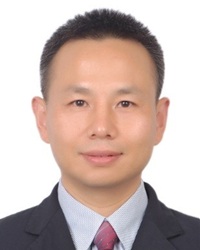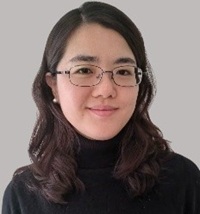
Geyong Min, University of Exeter, UK
Professor Geyong Min is a Chair in High Performance Computing and Networking in the Department of Computer Science at the University of Exeter, UK. His research interests include Computer Networks, Cloud and Edge Computing, Mobile and Ubiquitous Computing, Systems Modelling and Performance Engineering. His recent research has been supported by Horizon Europe, UKRI, EPSRC, Royal Society, Royal Academy of Engineering, and industrial partners. He has published more than 200 research papers in leading international journals including IEEE/ACM Transactions on Networking, IEEE Journal on Selected Areas in Communications, IEEE Transactions on Computers, IEEE Transactions on Parallel and Distributed Systems, and IEEE Transactions on Wireless Communications, and at reputable international conferences, such as SIGCOMM-IMC, INFOCOM, and ICDCS. He is an Associated Editor of several international journals, e.g., IEEE Transactions on Parallel and Distributed Systems, IEEE Transactions on Computers, and IEEE Transactions on Cloud Computing. He served as the General Chair or Program Chair of a number of international conferences in the area of Information and Communications Technologies.
Speech Title: Reimagining Intelligent Edge Computing: From Fragmented Resources to Scalable Machine Learning Infrastructure
Abstract: Intelligent edge computing is rapidly emerging as a foundational pillar for next-generation machine learning systems, enabling low-latency, context-aware, and scalable intelligence close to data sources. This keynote offers a holistic perspective on reimagining intelligent edge computing through innovative resource deployment and service optimization strategies. We first introduce a cooperative edge server deployment architecture to reduce infrastructure overhead. To further expand flexibility and coverage in dynamic environments, a hybrid server deployment paradigm is explored to improve both spatial adaptability and computational efficiency. In addition, a task-aware service placement mechanism is proposed for service optimization. Collectively, these insights outline a clear pathway toward scalable, efficient, and adaptive edge computing infrastructures for the next wave of machine learning technologies and real-world applications.

Jin Zhao, Trinity College Dublin, Ireland
Dr. Jin Zhao is currently an Assistant Professor at Trinity College Dublin (TCD), Ireland, an Alexander von Humboldt Fellow of Germany. She was a research scientist with the University of Tennessee, Knoxville, from 2020-2022. She serves as a Senior Editor of IET Generation, Transmission & Distribution, Associate Editor of IEEE Trans. on Smart Grid, and a regular reviewer for several IEEE and Nature Portfolio journals. Also, she serves as the chair of IEEE Task Force AISR, steering committee & PES rep of IEEE DataPort, and secretary of EDPG GHG subcommittee and load subcommittee. The senior author's publication record of Dr. Zhao includes several top-tier journals such as Nature Energy, IEEE PES Trans, and Applied Energy, etc.. Her research interests include power system resilience, climate-adaptive energy systems, highly renewable energy integrated systems, resilient microgrids, and machine learning.
Speech Title: Role of AI in extreme weather defense of power systems
Abstract: This speech explores the role of artificial intelligence (AI), especially deep learning (DL) and deep reinforcement learning (DRL) represented machine learning techniques, in enhancing the resilience of power systems under extreme weather conditions. Power systems with high shares of non-dispatchable renewables, such as wind and solar, are increasingly vulnerable to storms and sequential extreme events that can trigger cascading failures and large-scale outages. Using high-renewable, stand-alone systems as motivating examples, the talk highlights challenges related to low inertia, weather exposure, and renewable variability. The presentation introduces AI-driven decision-making approaches based on DL and DRL to support fast and adaptive operational responses during extreme events. To address data scarcity, generative learning are employed to synthesize realistic extreme-weather scenarios, improving training efficiency and robustness. The speech also discusses distributionally robust learning methods that explicitly account for uncertainty in weather evolution and system conditions, ensuring the survival of critical loads under worst-case scenarios. Overall, the talk demonstrates how machine learning can serve as a powerful tool for resilient, climate-adaptive power system operation.

